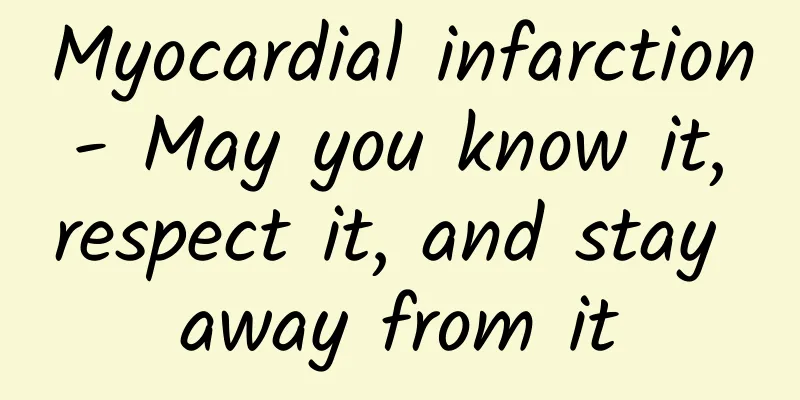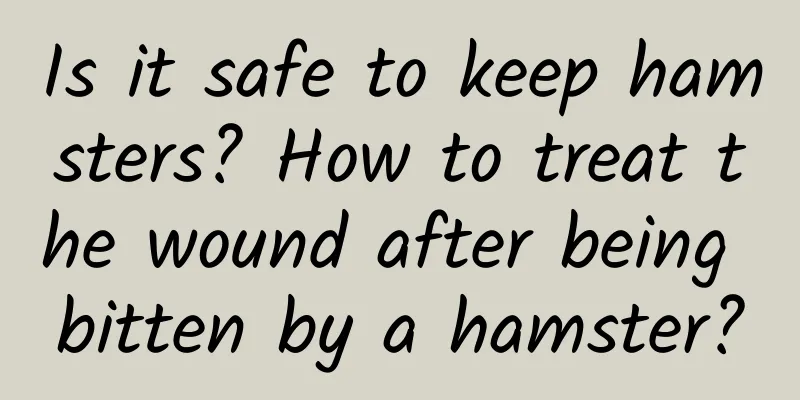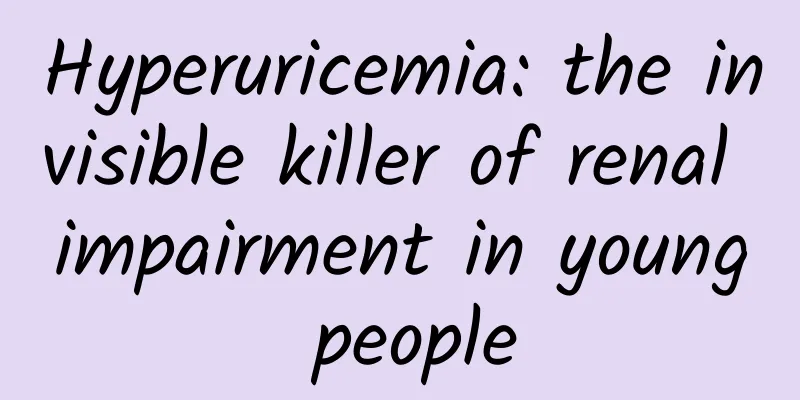Myocardial infarction - May you know it, respect it, and stay away from it

|
Myocardial infarction is a disease that is more common in Europe and the United States. In recent years, the incidence of this disease in my country has also been increasing year by year. People are no longer unfamiliar with this disease, but most people only know about it roughly and do not really understand it. I hope that the following knowledge quiz can help us "know it, respect it, and stay away from it" for myocardial infarction. 1. What is myocardial infarction? Myocardial infarction, to put it simply, is a type of heart disease in which the heart's arteries rupture due to vascular plaques, forming situ thrombi, which block the blood vessels and cause loss of blood flow, leading to ischemia and necrosis of the heart muscle. 2. Myocardial infarction is "you're welcome", please pay attention to the following reasons! (1) Overwork: Excessive physical labor will increase the burden on the heart, increase myocardial oxygen demand, and cause acute myocardial infarction. Intense emotional changes such as excitement, tension, and anger will increase myocardial oxygen consumption and induce plaque rupture in the coronary artery, leading to acute myocardial infarction. (2) Overeating: After eating a large amount of high-fat, high-calorie food, the blood lipid concentration suddenly increases, causing blood viscosity to increase, forming blood clots and causing acute myocardial infarction. (3) Alternating hot and cold stimulation: Winter and spring are always the peak seasons for acute myocardial infarction. Alternating hot and cold stimulation can cause coronary artery spasm and induce acute myocardial infarction. (4) Smoking and heavy drinking: Smoking and heavy drinking can induce coronary artery spasm, increase myocardial oxygen consumption and induce acute myocardial infarction. (5) Constipation: Excessive straining during bowel movements can increase myocardial oxygen consumption and induce acute myocardial infarction. 3. What are the precursors of myocardial infarction? (1) Gastrointestinal symptoms: Chest pain may be accompanied by nausea, vomiting, abdominal distension, and the urge to defecate. (2) Pain: Severe pain in the precordial area or behind the sternum, accompanied by radiating pain in the left shoulder and left upper limb, chest tightness, profuse sweating, irritability, a sense of impending death or suffocation, and the above symptoms cannot be relieved by taking nitroglycerin sublingually. (3) Prodromal symptoms: A few days or a week before a myocardial infarction, there is often worsening chest tightness and pain. The chest tightness and pain last for a long time and the pain is more severe than before. Resting or taking sublingual nitroglycerin is not as effective as before. (4) Hypotension and shock: manifested as irritability, pale complexion, cold and clammy skin, weak and rapid pulse, profuse sweating, decreased urine output (≤20 mL per hour), dull consciousness, and even coma. (5) Worsening of angina pectoris: The pain attacks are frequent, the severity is significantly aggravated, and the duration is long. Sublingual nitroglycerin has little effect. 4. What should patients with myocardial infarction pay attention to in their diet? (1) Eat a light diet and avoid consuming foods containing too much oil, such as animal offal, fatty meat, nuts, fried foods, etc. (2) Control sodium salt intake. Patients with myocardial infarction may have concurrent hypertension and heart failure and need to limit their sodium salt intake. (3) High-quality protein diet: Patients with myocardial infarction need to ensure protein intake, and give priority to high-quality proteins such as fish and chicken. (4) For patients with myocardial infarction and concurrent heart failure, fluid intake needs to be controlled. 5. Learn to “rely on yourself” - How to save yourself at home when acute myocardial infarction occurs? When acute myocardial infarction occurs, the patient should stop moving immediately and take nitroglycerin or quick-acting heart-saving pills. When taking the medicine, pay attention to the blood pressure. Do not take the medicine when the blood pressure is low. Family members should call "120" immediately to notify the emergency center to send a car for diagnosis. Do not go to the hospital on your own. |
>>: "Strength" is not in line with "heart" - heart failure
Recommend
Can going to the gym really increase breast size?
Breasts are very important to a woman, and are al...
What is considered a regular menstrual period?
Under normal circumstances, menstruation comes on...
Can cervical atrophy be restored?
Postmenopausal women often have to deal with a pr...
Rumor debunked: Drinking too much milk tea will clog your blood vessels?
Milk tea is the "life-saving water" of ...
Causes of prolonged menstruation
With the development of the times, many female fr...
Stomach-nourishing fruits, these six fruits cannot be missed
With the quickening pace of social life and peopl...
What are the aspects of diagnosis of childhood hypertension? Early detection and early intervention are reversible!
Author: Li Xiaohui, Chief Physician, Children'...
The 8th National Disability Prevention Day | Strengthen disability prevention and do a good job in blood lipid monitoring and management
August 25, 2024 is the eighth National Disability...
What is the ranking of Sichuan's 21 cities and prefectures? What is the relationship between Sichuan Province and Chongqing?
Sichuan, referred to as "Chuan" or &quo...
What are the treatments for breast cancer?
In recent years, the incidence of breast cancer h...
What happens if my basal body temperature remains low?
Our daily body temperature is not fixed. Even if ...
How is the warmth retention effect of polar fleece? Which season should polar fleece jackets be worn?
Polar fleece is a fabric that has attracted the a...
What causes thin waist and thick legs?
Women with good figures like summer very much, be...
IDC: Global tablet shipments to reach 169 million units in 2021, up 3.2% year-on-year
According to statistics provided by market resear...
Causes of memory loss after childbirth
Many mothers will experience abnormal motor behav...









